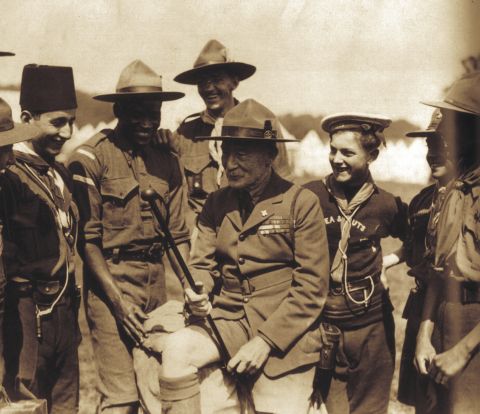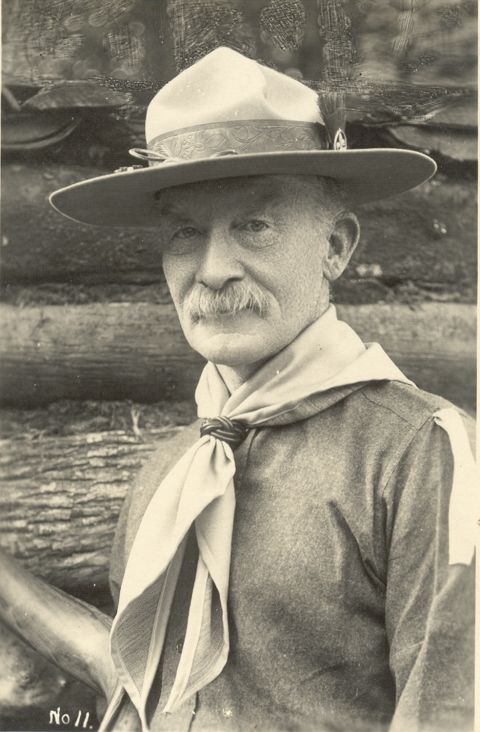What is the scout movement?
On this page you will find out more about scouting and Robert Baden-Powell, the founder of the scout movement. An introduction to its development exits over at history of the world scout movement.
Scouting

The affiliation to the movement starts with the scout promise, in which you obligate to the code of behaviour and promise to do your best for god as well as your fellow people. Following the principle «learning by doing» the contents are mainly taught by practical training. Thus, kids and teenagers learn to take responsibility at a young age by solving tasks in patrols.
Friendship, solidarity and tolerance belong to the most important virtues of the movement. These are acted out by the will to help others and contribute something to the community, as Sir Robert Baden-Powell has written in his final letter to the scouts:
But the real way to gain happiness is by giving out happiness to other people. Try to leave this world a little better than you found it and when your turn comes to die, you can die happy in feeling that at any rate you have not wasted your time but have done your best.
Robert Baden-Powell

Sir Robert Baden-Powell, who scouts call «B-P», was born in London on the 22nd of February 1857. His father, a reverend and professor at Oxford University, died when he was tree years old, so that his mother had to raise the big family. His grandfather aroused «B-P's» interest in nature. Thus he spent a lot of his childhood ranging the woods und following animal traces.
After school, Sir Robert Baden-Powell signed up for the army. He achieved recognition as a strenuous and popular officer during his stays in India and South Africa. Because of his navigation skills «B-P» was soon ordered to train the scout department. In 1899 he published the guidebook Aids to Scouting. At the same time «B-P» became a British folk hero after defending the town Mafeking against the Boer.
Scouts obtain their knowledge by trying out something new in a secure ambiance.
Back home, Sir Robert Baden-Powell devoted himself to the youth education, where his experience as army instructor came in handy. «B-P» left the army in 1910 to focus more on the scout movement. Two years later, he married Olave St.Claire-Soames, who gave birth to three kids. In 1920, Sir Robert Baden-Powell was elected Chief Scout of the World at the first World Scout Jamboree. Nine years after, he was appointed Baron of Gildwell by the British monarchy.
On the 8th of January 1941, «B-P» died in his house in Nyeri (Kenya). Below the Fleur-de-lis on his grave there is a circle with a point in the middle. This represents an international sign of the scout movement and has the following meaning: «I’ve fulfilled by task and returned home.»



